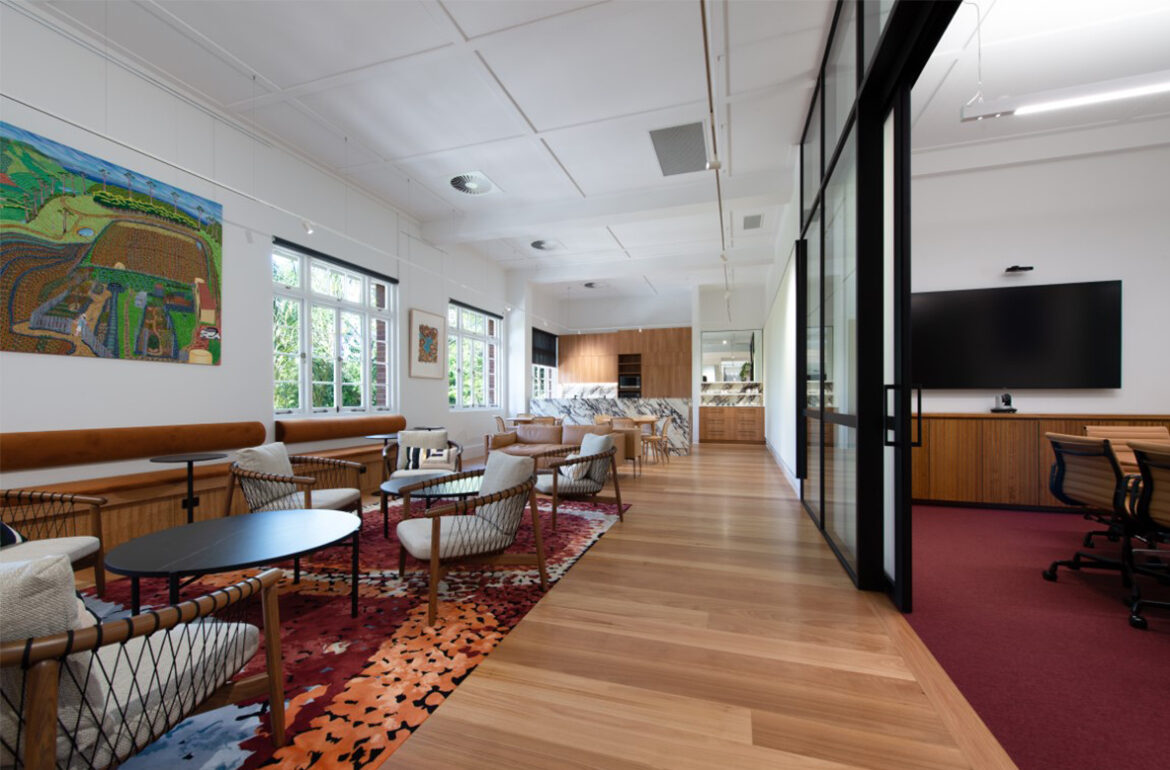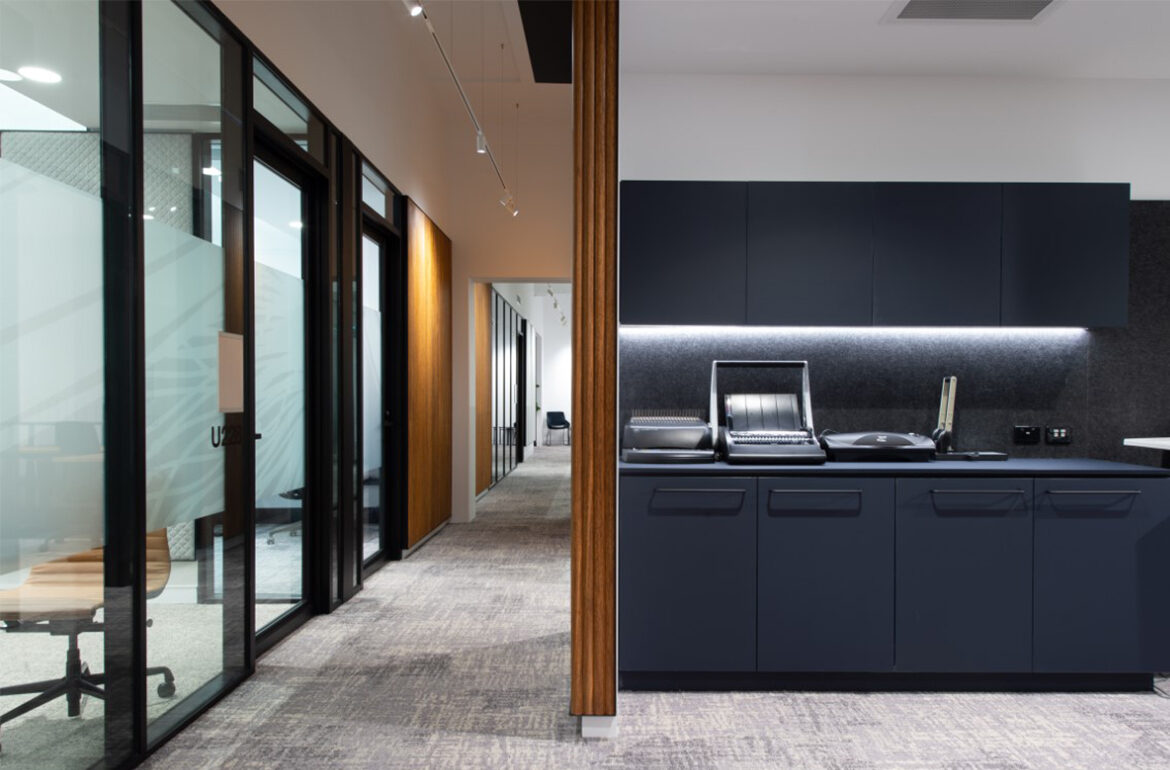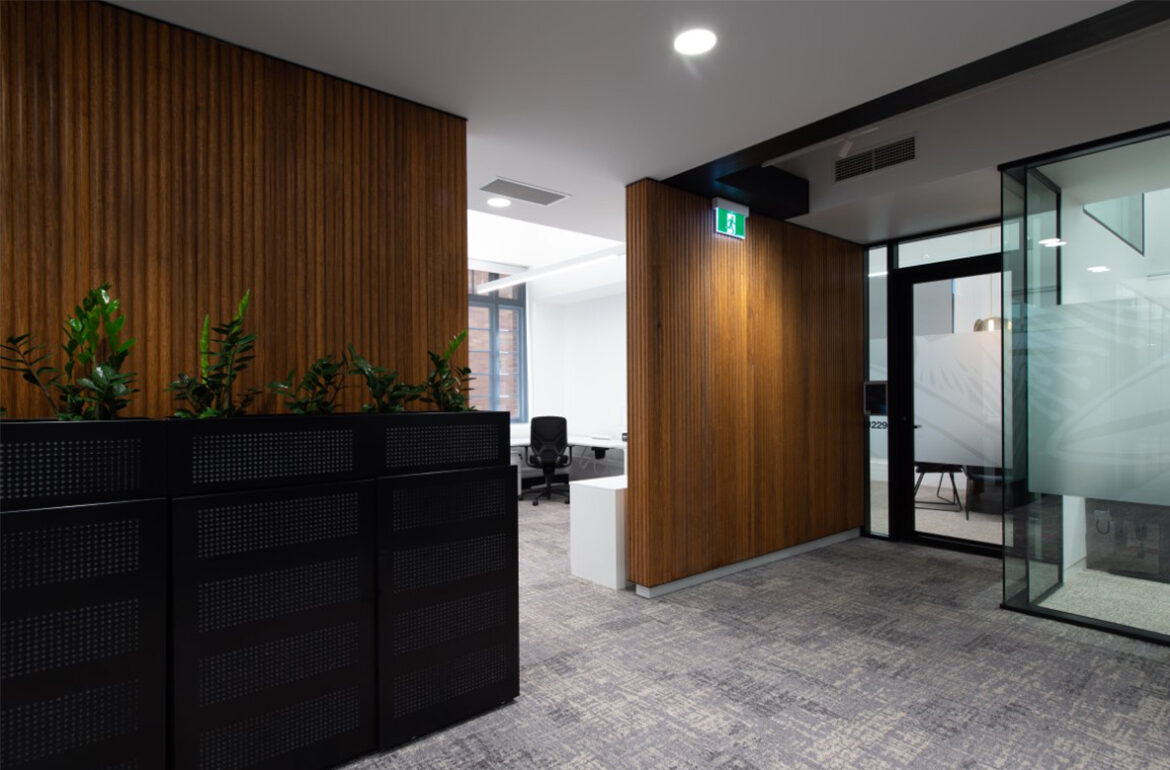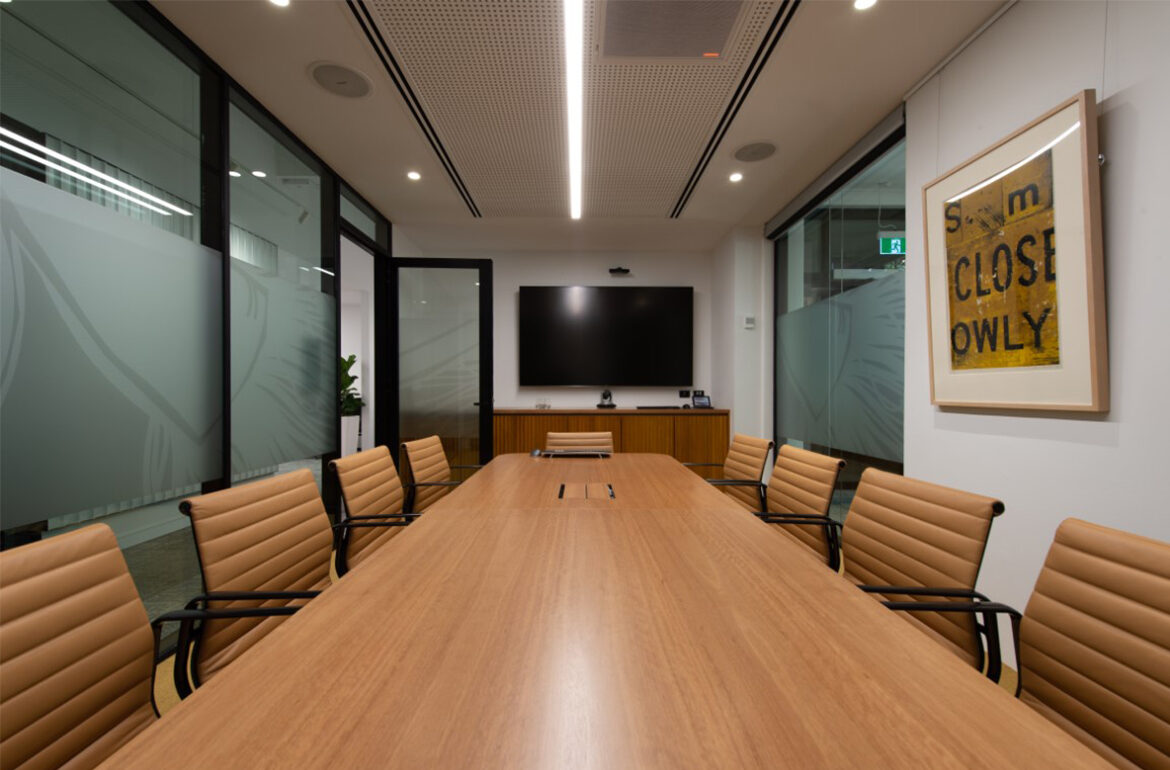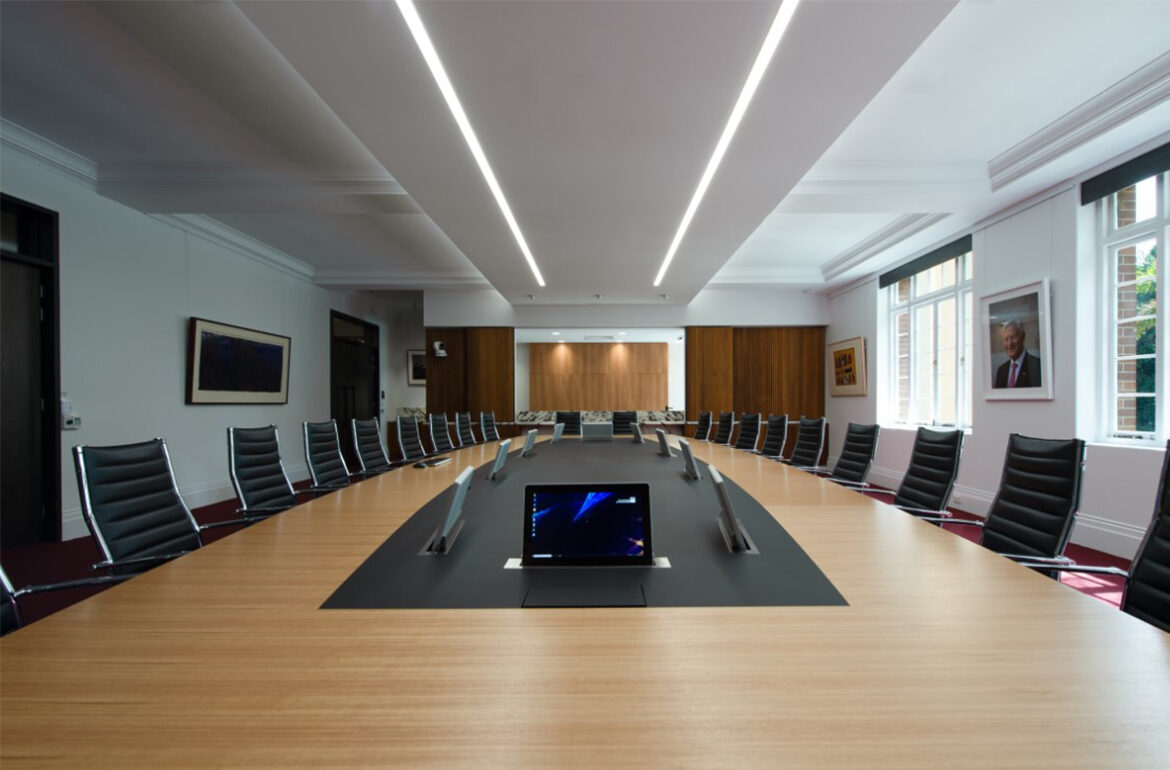Kane Constructions was engaged by the Queensland University of Technology to undertake the Chancellery Building Levels 2 & 3 Refurbishment, within the existing and operational U Block at the university campus in Gardens Point.
With the works delivered as a two-stage programme, the project commenced with the removal and replacement of a like-for-like Kliplok roof sheeting and insulation system.
Internally, Levels 2 & 3 of the heritage-listed building underwent demolition of toilets and amenities, offices, workstations, aluminium and glass partitions, windows and door infills. Heritage doors still exist throughout the space, which were maintained and reutilised.
The internal fabric of the building had understandably been identified as a significant key focus, with much needed care and respect provided to the early masonry, piers, stairs, balustrades and terrazzo landings.
Primarily a fitout project, the internal finishes specified for the project were of a very high quality and the revised and upgraded services throughout further emphasised the importance and status of this building.
Given the works were undertaken in the heart of the university campus, Kane only had one small laneway for site access. In order to eliminate access issues, Kane’s site sheds were propped on a podium in amongst trees. All site deliveries were strictly scheduled and Kane built a loading platform out of scaffold to accommodate deliveries to Level 3 to minimise foot traffic in the building.
The building remained operational throughout the project with staff working on the level beneath Kane’s worksite. With new mechanical and hydraulic penetrations that had to connect through to the level below, the team worked weekends to cut through the slab and ceiling below, and install the mechanical duct and reinstate the ceiling for the facility.
Given the project was delivered during the peak of the COVID-19 pandemic, furniture and material supply for the project was greatly affected with manufacturers closing down for almost two months in Mississippi and China. Temporary furniture was procured and installed to 70% of the space whilst the new items were delayed. To ensure a smooth undisrupted transition to the occupant, Kane scheduled two-night moves to swap out the hire furniture. Kane’s team intricately marked up all furniture to be removed, whilst ensuring that any personal effects were placed back in their original location for the occupant’s return to the space.
